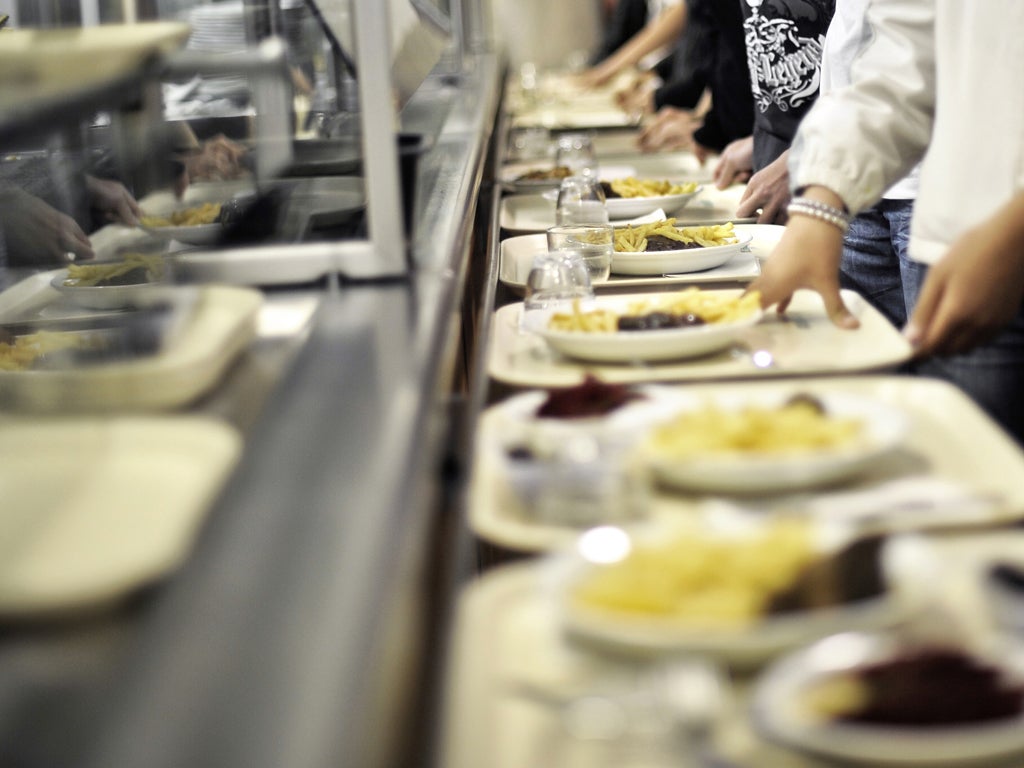Packed lunches were a marker of class at school - banning them might bring children together
I usually struggle to comprehend pretty much everything Gove says, but this time, I think he might have a point

After being handed an anaemic looking plate comprising two Turkey Twizzlers, some formed potato arrangements and a dollop of baked beans, my desire to get out in the sun was amplified further.
In the playground, my friends would be sitting under the shade of a fragrant tree, enjoying satsumas, cereal bars and sandwiches so full of ham and salad the bread would struggle to even play a part. I would be stuck at a plastic table, sat upon a plastic chair, scrambling through chemical concoctions and awaiting a sponge so dense and custard so runny it was but a sweetened rock submerged in yellow water.
My mum, then a single parent, was studying at the University of Surrey at the time and I therefore qualified for free school meals. For three years I suffered the dining hall.
Michael Gove’s latest educational plan seemed another of his irreverent and misshapen ideas. He has decided packed lunches should be banned and head teachers are being encouraged to heed the advice. In continuance with the norm my instinct was dismay – this was yet more of his nannying; his unreserved misunderstanding of life.
But then my mind took me back to a period of segregated half-hour slots where children were divided into financial brackets.
In the good old days I hear lunch boxes played no part in educational institutions. Every child sat together, ate side by side like peas in a pod. Some are championing those times and claiming the canteen should be the ‘hub’ of the school – as the kitchen is so often the heart of the home.
I tend to agree. School dinners are improving, and while many have a way to go, if they all got a little of the Jamie Oliver treatment why couldn’t the school children of 2013 eat as one? And if all parents saw their tender loved ones chowing down in the canteen perhaps the additional pressure would give even greater scope to ensure standards the Leon boys yearn for in their review.
Food is a divider of class. It’s often a reflection of circumstance and situation. If you were to go to two dinner parties, the first of which you were served seared pigeon on a bed of chard, beetroot and walnuts, the second an Iceland frozen lasagne, it would be hard not to come to some sort of conclusion regarding your hosts. Food mirrors so much. And those very English thoughts and practices have got to manifest somewhere. Yet no child should be cordoned by their parent’s – or parents’ – income. Moreover, none should have to endure poor nutrition and sustenance as a result.
So perhaps while banning packed lunches sounds drastic, would it not be beneficial in a country, so bound by demographic, to group children together from the offset – in an area that plays such a vital part in how we view social standing? Whether all meals are free, as Gove has proposed, or just for the million or so who meet the guidelines, who’s to say communal dining isn’t a viable intention? Perhaps lunch boxes – many of which are full to the brim with junk anyway – should be eradicated after all.
I usually struggle to comprehend pretty much everything Gove says, but this time, in a twisted and roundabout way, I think he might have a point. Now there are cooks delivering food actually worth serving.
Perhaps by secondary age packed lunches are a freedom and choice that would be wrong to take away, certainly when teenagers should have an idea themselves of what’s good for them. But at primary school, in those formative years, mandatory dinners with no separation may be a progressive step. Alleviating a restriction between eating and nurturing a community is something worth thinking about. No child should be defined by what they eat, or where they eat it.

Join our commenting forum
Join thought-provoking conversations, follow other Independent readers and see their replies